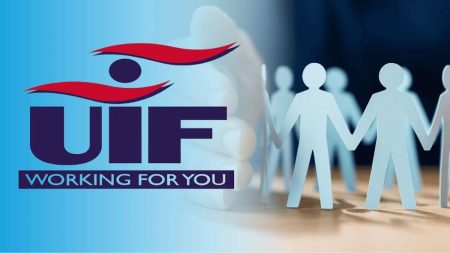Life is unpredictable, and illness can strike anyone at any time, affecting your ability to work and earn a living. In South Africa, the Unemployment Insurance Fund (UIF) provides support to employees who cannot work due to illness through UIF Illness Benefits. If you’re wondering whether you qualify for this financial relief, this article will explain the criteria in detail, the types of illnesses covered, and how long you can claim these benefits.
What Are UIF Illness Benefits?
UIF Illness Benefits are designed to assist workers who have contributed to the Unemployment Insurance Fund but cannot work due to illness for a period longer than seven consecutive days. The fund ensures that affected employees can still meet their financial obligations while they recover from illness and return to work.
These benefits help bridge the gap by providing temporary income, making it easier for individuals and their families to manage their finances during difficult times. The illness benefits are part of the broader UIF system, which also covers unemployment, maternity, adoption, and dependent benefits.
Who Qualifies for UIF Illness Benefits?
To qualify for UIF Illness Benefits, you must meet certain criteria set out by the Department of Employment and Labour in South Africa. Below are the key qualification requirements:
- UIF Contributions:
- You must have been contributing to the UIF while employed. This applies to all employees, with the exception of some categories such as self-employed individuals or people working for less than 24 hours a month for a specific employer.
- Contributions are typically deducted from your salary by your employer, and they are legally required to make these deductions and submit them to the UIF on your behalf.
- Unable to Work Due to Illness:
- You must be unable to work for a period longer than 7 consecutive days due to illness.
- The illness must be serious enough to prevent you from carrying out your normal duties at work. This could include both physical and mental health conditions.
- Note: If the illness causes you to be unable to work for 7 days or less, you will not qualify for illness benefits under the UIF.
- Sick Leave Exhaustion:
- Illness benefits can only be claimed if your sick leave with your employer has been fully exhausted or if your employer pays you less than your regular salary during the period of your illness.
- If your employer continues to pay your salary in full while you are on sick leave, you will not be eligible to claim UIF illness benefits.
- Valid Medical Certificate:
- You must submit a medical certificate from a registered medical professional confirming the nature and duration of your illness.
- The medical certificate must clearly state that you are unable to work and the period for which you are expected to be off work.
- Application Timeline:
- Your application for illness benefits must be submitted within 6 months from the date you stopped working due to illness. Failing to submit your claim within this timeframe could result in your application being denied.
- Non-Remuneration Clause:
- Your employer must confirm whether you are receiving any form of remuneration while you are on sick leave. If you are receiving partial payment, UIF may top up your salary based on the difference between what you earn and what you are eligible for through the UIF.
- If you are receiving full remuneration from your employer, you will not qualify for the UIF illness benefits.
Related: Understanding UIF Reduced Work Time Benefits
Types of Illnesses Covered by UIF Illness Benefits
The UIF does not specify a particular list of illnesses that qualify for illness benefits. However, the key criterion is that the illness must be serious enough to prevent you from working for longer than seven consecutive days. Both physical and mental health conditions are considered as long as they meet the UIF criteria.
Some of the common types of illnesses covered include:
- Chronic Conditions:
- Conditions like diabetes, hypertension, or heart disease may qualify for UIF illness benefits if they flare up and require you to take extended time off work.
- Infectious Diseases:
- Workers who contract infectious diseases like tuberculosis (TB), COVID-19, or HIV/AIDS may be eligible for illness benefits if these conditions render them unable to work for an extended period.
- Mental Health Conditions:
- Mental health issues such as depression, anxiety, and bipolar disorder may also qualify if they cause you to be unable to fulfill your work duties. A medical certificate from a licensed psychologist or psychiatrist would be required to support your claim.
- Injury or Recovery from Surgery:
- If you are recovering from surgery, severe injury, or any medical procedure that requires extended recovery, you may also qualify for illness benefits.
- Cancer and Other Serious Diseases:
- Conditions like cancer, kidney disease, and other serious illnesses often require long-term treatment and recovery, which may make you eligible for illness benefits.
How Long Can You Claim UIF Illness Benefits?
The UIF illness benefits are calculated based on the amount of time you’ve worked and the contributions you’ve made to the UIF. You accumulate credit days while you work, and these credit days determine how long you can claim illness benefits.
- Credit Days:
- For every four days that you work, you accumulate one credit day.
- You can claim benefits for up to 365 credit days over a four-year period. This means if you’ve worked continuously and contributed to the UIF for four years, you are entitled to claim for up to 365 days of illness benefits.
- Duration of Benefits:
- The illness benefits are paid out for as long as you are unable to work, up to the limit of your accumulated credit days.
- The maximum period you can claim illness benefits is 365 days over a four-year cycle.
- Partial Payment from Employer:
- If you are receiving partial payment from your employer while you are on sick leave, the UIF will pay the difference to ensure you receive the full benefit amount.
What Documents Are Needed to Claim UIF Illness Benefits?
When applying for UIF illness benefits, you must submit the following documents to ensure your claim is processed:
- UI-2.8 Form: A form with your banking details so that the UIF can transfer your benefits.
- UI-2.7 Form: A declaration from your employer that outlines your remuneration while you are on sick leave.
- Medical Certificate: A valid certificate from a medical doctor confirming the nature and duration of your illness.
- UI-19 Form: A form completed by your employer that records your employment history and contributions to the UIF.
- ID Document: A 13-digit South African ID, passport, or asylum seeker’s permit to verify your identity.
How to Apply for UIF Illness Benefits?
- Gather Documents:
- Make sure you have all the required documents (UI-2.8, UI-2.7, UI-19, and medical certificate) in order before you submit your application.
- Submit Your Application:
- You can submit your claim at any Labour Centre in South Africa, or you can submit your application online through the UIF portal.
- Wait for Processing:
- Once your application has been submitted, the UIF will review it and, if approved, payments will be made into your bank account.
- Follow-Up:
- If your illness extends beyond your initial claim period, ensure that you submit a follow-up UI-3 form to continue receiving benefits.
Related: COIDA Medical Benefits: What Medical Costs Are Covered for Workplace Injuries
If you are unable to work due to illness, UIF Illness Benefits offer essential financial support to help you through difficult times. To qualify, you must have contributed to the UIF, be unable to work for more than seven consecutive days, and meet the documentation requirements. Remember to apply within six months of stopping work due to illness to ensure that your claim is processed.
By understanding the qualification criteria and how to claim, you can secure the financial assistance you need while focusing on your recovery.










